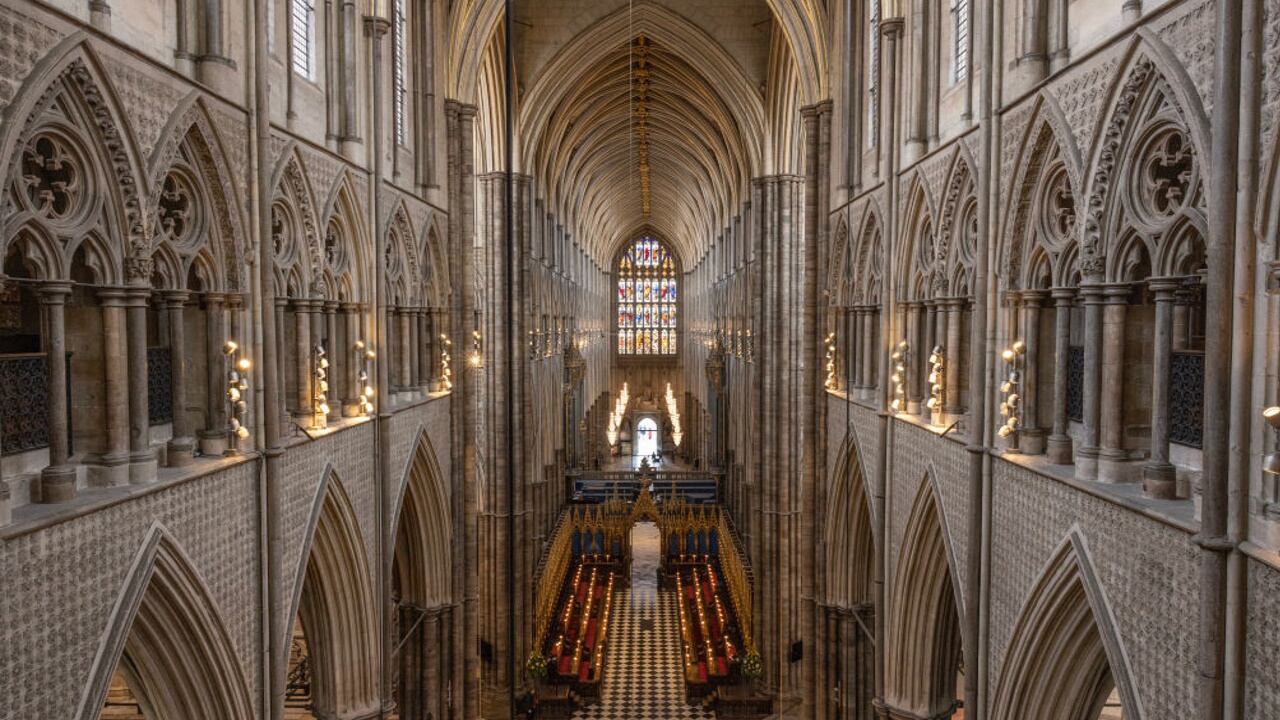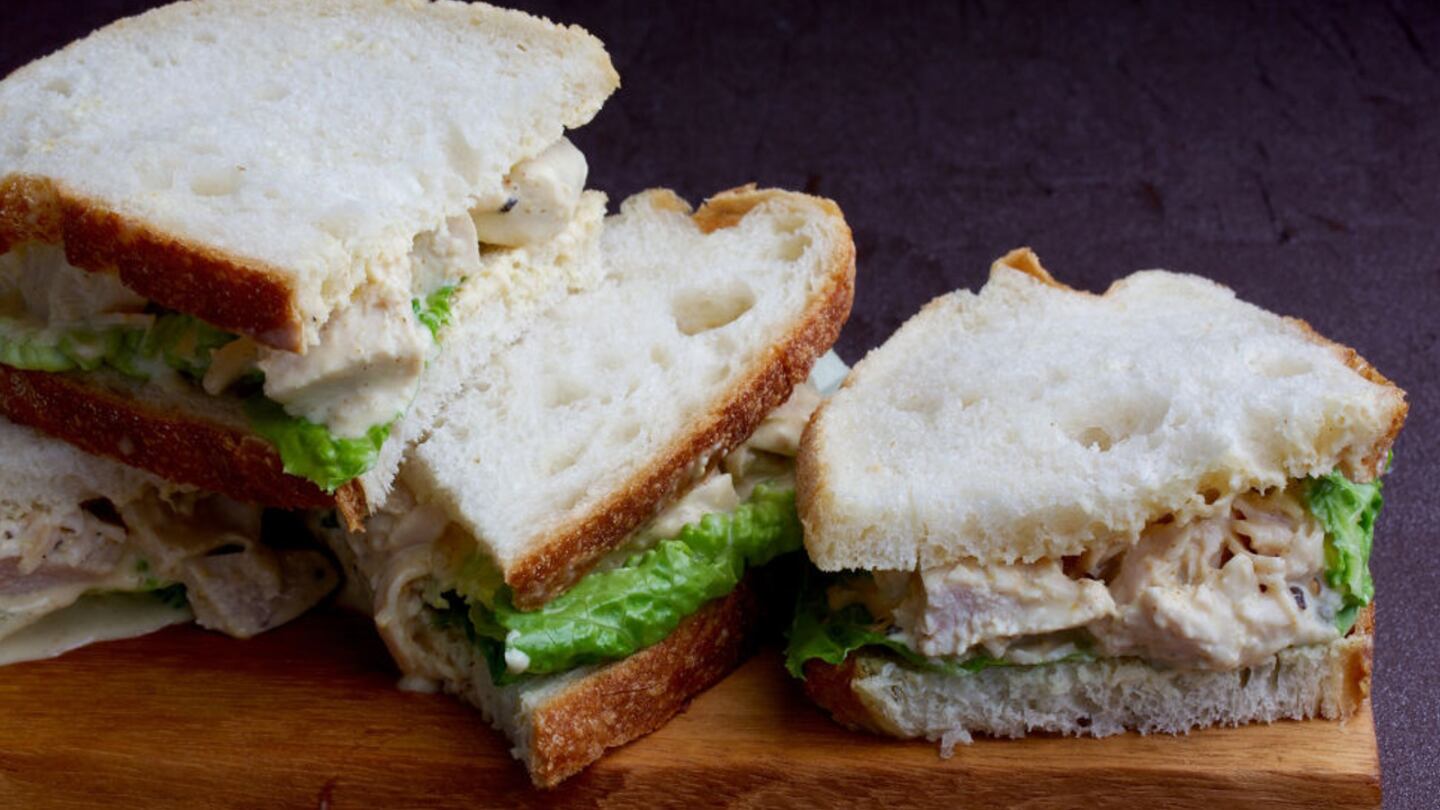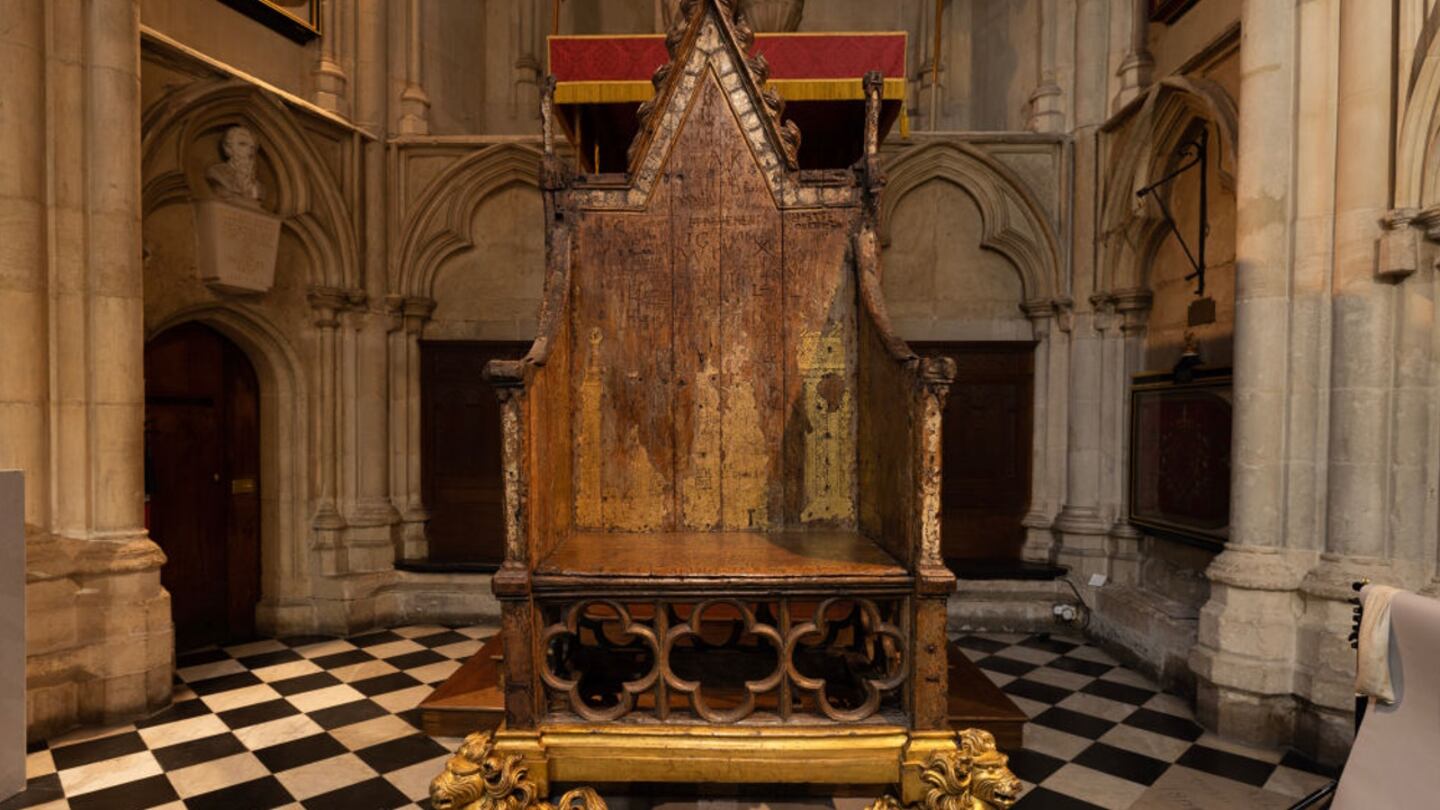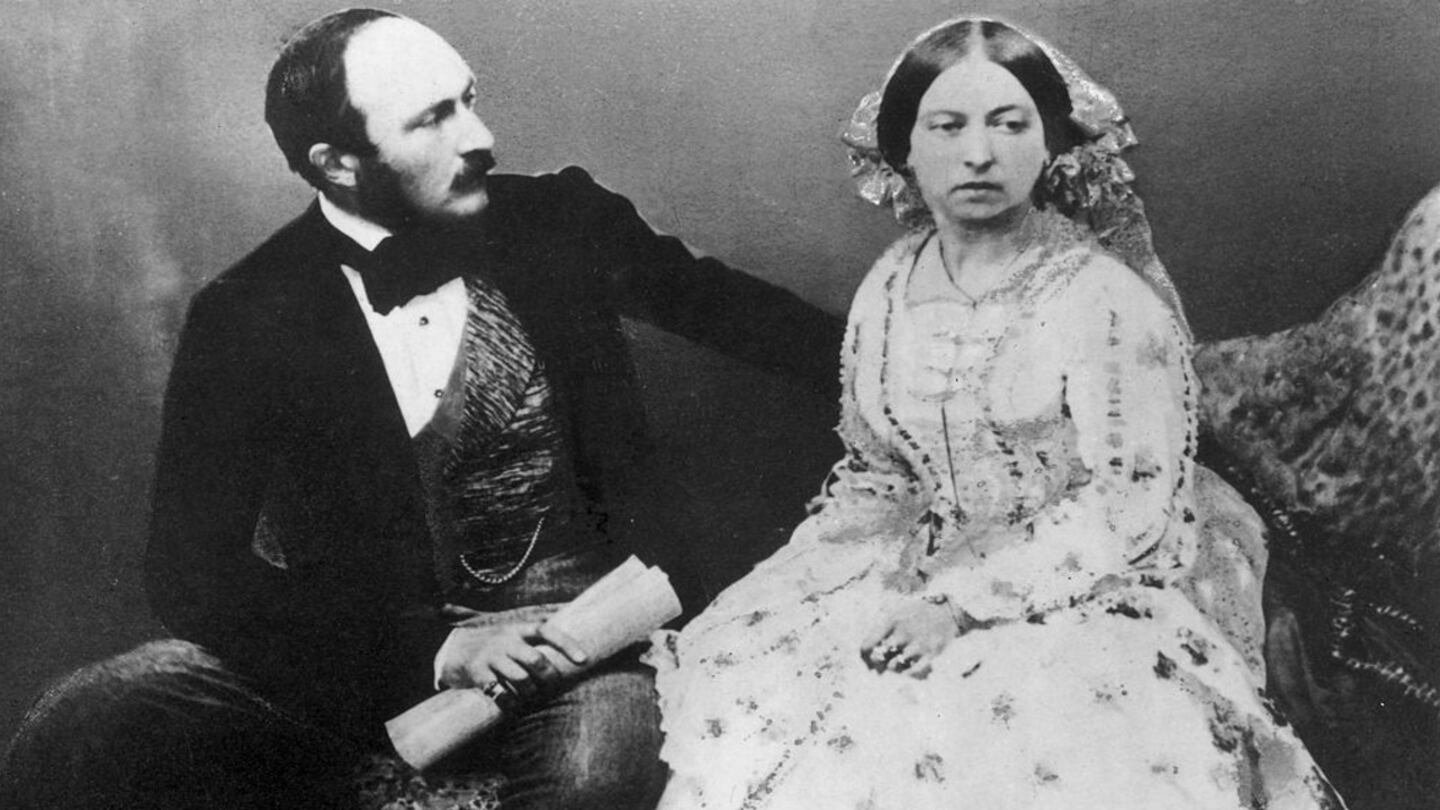LONDON — Pomp and ancient traditions will be at the forefront during the coronation of King Charles III.
The deeply religious ceremony will be held at Westminster Abbey in London. While there are a few new wrinkles, tradition still rules.
“The coronation is very ritualistic. It’s not just a showcase of (Charles) showing that he’s (now the) king,” Meredith Cohen, professor of medieval art and architecture at UCLA, told Architectural Digest. “It’s a whole procedure where he walks in a man and he comes out a king.”
Coronations in the United Kingdom have had some unusual moments through the years.
Here are some of them.
‘Really a farce’
King George I’s coronation on Oct. 20, 1714, “was really a farce,” according to a report in The Herts and Essex Observer on May 15, 1937. The new king was previously the Elector of Hanover and spoke little, if any English. For his coronation, the ceremony was conducted in Latin because his ministers could not speak German, according to the Westminster Abbey website.
Not invited
At the coronation of King George IV on July 19, 1821, the new king gave strict instructions that his wife, the former Princess Caroline of Brunswick, should not be allowed into the abbey to watch the proceedings. George had married Caroline, who was his first cousin, on April 8, 1795, but refused to live with her.
“They disliked each other on sight,” according to the Westminster Abbey website.
The coronation was also one of the most extravagant in the history of the British monarchy, costing more than £400,000 at the time. According to OfficialData.org, that translates to £58,454,607.02 in 2023 currency. In U.S. money that is approximately $72,572,271.40, according to the UK’s Currency website.
At the other end of the spectrum, George IV’s brother, William IV, had to be convinced to have a coronation at all, according to the Westminster Abbey website. He spent so frugally for his Sept. 8, 1831, ceremony that it became known as “the penny coronation.”
Coronation chicken
Coronation chicken was created by Le Cordon Bleu London and was served at the Coronation Luncheon in 1953, according to Country Living.
It can still be found on the menu of the restaurant as “Poulet Reine Elizabeth.”
The entrée is described as chicken, boned and coated in curry cream sauce. At each end of the dish is a well-seasoned dressed salad of rice, green peas and pimentos, according to the restaurant’s website.
For the coronation of King Charles III, Le Cordon Bleu London has prepared a new dish -- a gourmet Coronation Chicken Bun and Fruit Tart, accompanied by a “delicate golden crown lace.”
Sejal Sukhadwala, a London-based food writer and author, said the dish is influenced by French cuisine and acknowledges, colonial India, The New York Times reported. It was based on the chicken created in 1935 for George V, who enjoyed curry. His grandmother, Queen Victoria, also loved the dish.
“The curry powder in coronation chicken was probably an acknowledgment of the influence of the empire and a tribute to the two previous curry-loving monarchs,” Sukhadwala wrote in an email to the newspaper.
The meal has now been converted from a formal dish to a chicken salad type of delicacy.
By the 1980s, coronation chicken salad could be found in ready-made sandwiches at Marks & Spencer and on the menus of backyard weddings and baby showers, the Times reported.
Take a seat
The Coronation Chair, perhaps the oldest piece of furniture in the United Kingdom still used for its original purpose, was originally commissioned by Edward I in 1296. It was finished sometime around 1300, according to Architectural Digest. It was first used for the coronation of Edward II on Feb. 25, 1308, the website reported.
The chair originally displayed golden birds, berries and plants decorated by Edward I’s royal painter, Walter of Durham, according to Royal Central.
Made of gilded oak, it has been given a thorough restoration ahead of King Charles III’s coronation.
That’s a good thing. The chair has been covered with graffiti and pieces have been chipped away by souvenir hunters. One brazen soul put out an early version of “Kilroy was here” after waking from a nap, Royal Central reported.
“P. Abbot slept in this chair, 5-6 July 1800,” the person carved into the furniture.
The chair has been moved out of Westminster Abbey only twice -- in 1653, when Oliver Cromwell moved it to Westminster Hall when he was installed as Lord Protector, and during World War II, when it was moved to the crypt at Gloucester Cathedral about 114 miles west of London, according to Royal Central.
Getting a Handel on it
George Frederic Handel composed “Zadok the Priest: The Coronation Anthem,” one of four songs for the coronation of George II on Oct. 11, 1727. The other songs were “Let Thy Hand Be Strengthened,” “The King Shall Rejoice” and “My Heart is Inditing,” according to Britannica.com. Born in Germany, Handel became an English subject in 1727.
A congregational hymn and the singing of the national anthem were introduced at the coronation of Queen Elizabeth II in 1953, according to the Westminster Abbey website.
Crowned
The current St. Edward’s crown has been used for coronations since June 22, 1911, when George V was crowned.
It was made for Charles II in 1661 to replace the medieval crown that had been melted down after the beheading of Charles I in 1649, according to the Royal Collection Trust.
The original crown was believed to date to Edward the Confessor in the 11th century.
The current crown has a velvet purple cap and an ermine band, according to Britannica.com. It is part of the crown jewels collection housed in the Tower of London.
The only time Charles III will wear this crown is during his coronation.
WATCH: A Scrabble tile-laden replica of St Edward’s crown has been unveiled to mark the 75th anniversary of the popular board game and the upcoming coronation of King Charles pic.twitter.com/o8keEkhCSO
— Reuters (@Reuters) April 17, 2023
‘Botched coronation’
The ceremony for Queen Victoria on June 28, 1838, was dubbed “the last of the botched coronations,” according to History.co.uk.
The coronation lasted five hours and there was no rehearsal, according to the Westminster Abbey website. Only Victoria and Lord John Thynne, the sub-dean of Westminster, knew what was going on. An archbishop had to force the coronation ring on her finger because it was too small, and an elderly peer named Lord Rolle fell down the stairs, according to History.co.uk.
To top it off, a bishop announced the end of the ceremony at the wrong moment, forcing the new queen to return to her seat.
It was no small wonder that a special committee of historians was selected to devise a more regimented plan for future monarchs.
Hitler not invited
Adolf Hitler was not invited to George VI’s coronation, but not for the reason one might think. According to a Canadian Press dispatch published in the Jan. 26, 1937, edition of The New York Times, Hitler was “barred by a curious convention.”
The British government sent invitations to nations asking them to send representatives.
“But it is understood that the invitation does not include heads of states,” the newspaper reported. “Therefore, Hitler cannot send himself.”
The reason was simple.
“If they were invited, questions of precedence would arise,” Canadian Press reported.
Oldest monarchs
When Queen Elizabeth died at the age of 96 on Sept. 8, 2022, her 73-year-old son became the oldest British monarch to ascend to the throne.
Charles III topped the record held by William IV, who was 64 years, 308 days when he became king in 1830. Other old-timers include Edward VII, who was 59 years, 73 days when he succeeded Queen Victoria in 1901; and George IV, who was 58 years, 169 days when he became king upon the death of his father, George III, in 1820.
Information from newspaper archives was used in compiling this report.
©2023 Cox Media Group

















